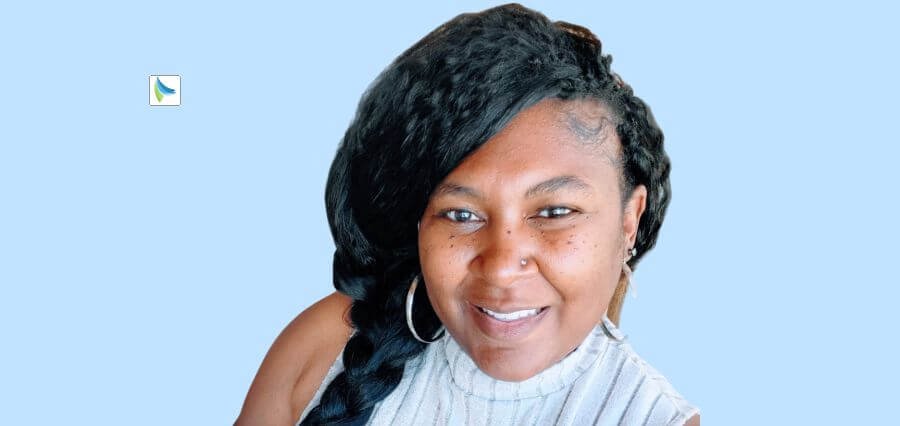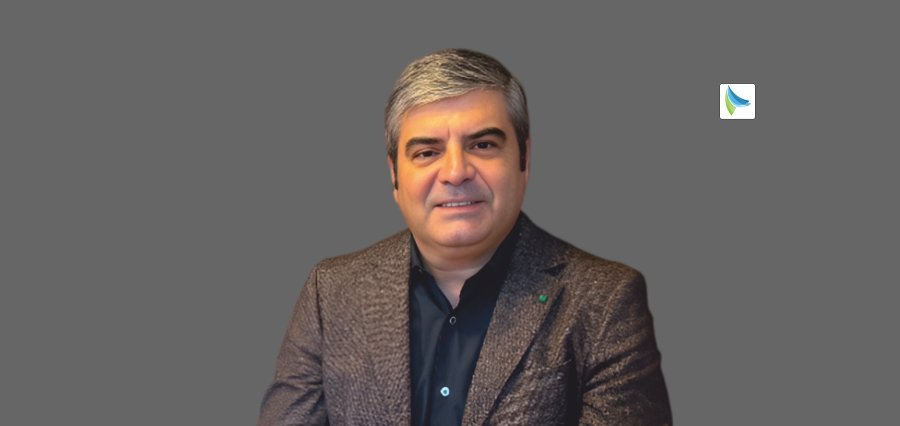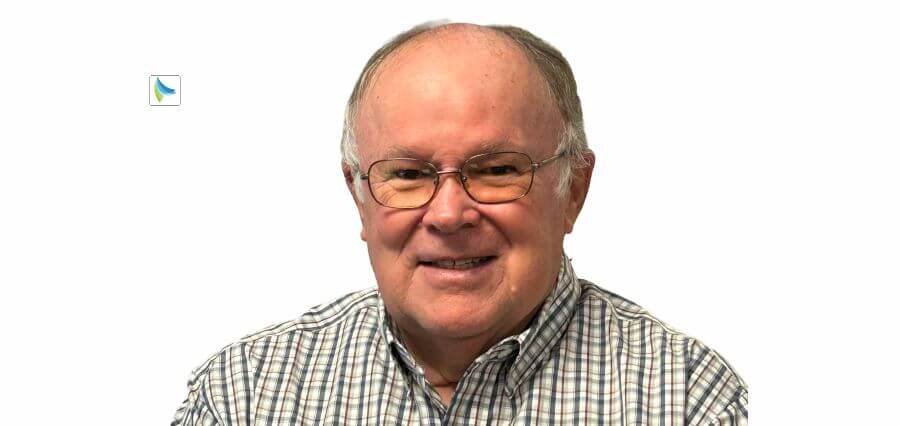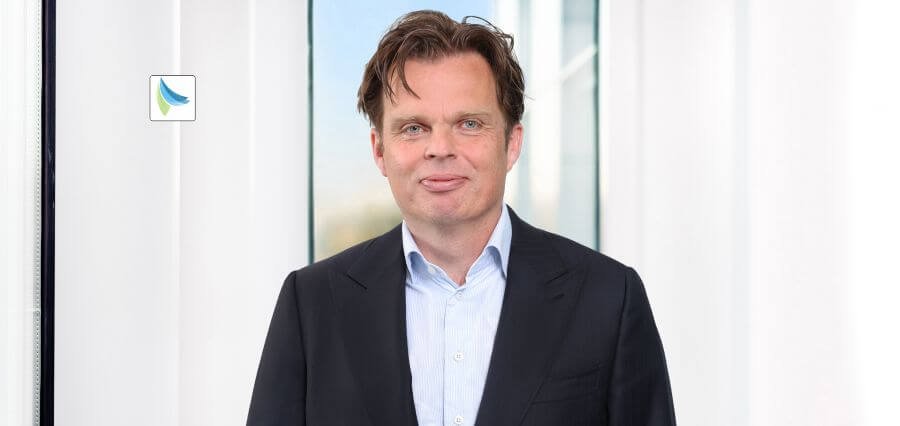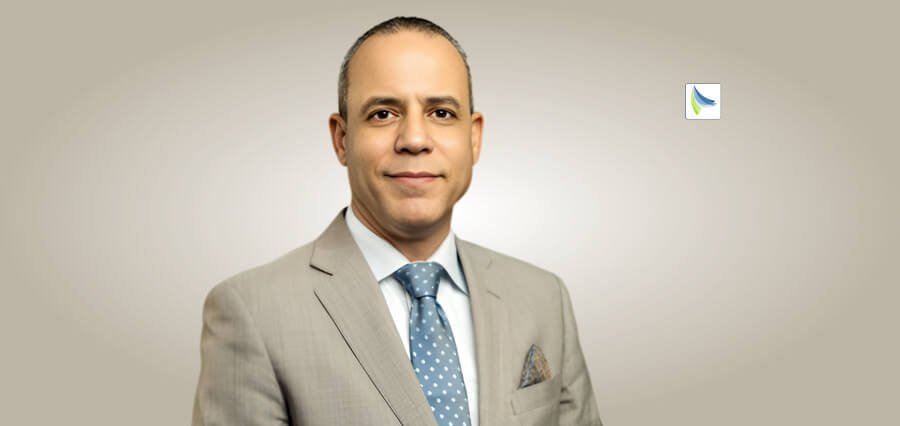Some stories of leadership are not written in boardrooms, but within a power that comes from sacrifice, resilience, and unwavering faith. Fatima Habib Al-Sayegh‘s journey with 20 years’ experience and becoming the Head of IT Governance, Compliance, and Service Management in the Energy Sector is one distinguished less by privilege and more by perseverance in the face of life’s most difficult challenges.
She grew up as the eldest of five children in a home where, despite their lack of formal education, her parents instilled in her qualities of trust, courage, and drive. When her ambition of studying medicine was cut short due to financial constraints, she took an unorthodox leap into the then-emerging world of information technology, a decision that would alter both her profession and her identity.
Her climb from a teenage developer writing code to a strategic leader driving digital transformation has powered not only by technical prowess, but also by resilience built through personal grief. From losing her father early in her career to the crushing sadness of losing her mother and sister in the same year, she turned tragedy into strength. Today, she is a leader who exemplifying empathy and empowerment, demonstrating that true technology leadership is found not only in the creation of systems, but also in the improvement of people’s lives.
The Foundation: Dreams Built on Parental Sacrifice
Al-Sayegh’s journey begins with parents who possess immense wisdom despite lacking formal education themselves. They invested everything in their five children; Fatima, Mohammed, Sakina ,Ali, , and Kholoud, dreaming of seeing them reach heights they couldn’t reach. When financial realities made a medical career impossible for their eldest daughter, they supported her leap of faith into the emerging field of Information Technology in the 1990s.
This decision required courage from everyone involved. In their culture, sending a daughter into a mixed professional environment raised eyebrows and invited questions. Yet her parents trusted her completely, and that trust became the bedrock of everything she would later build.
The first earthquake struck in 2002 when her father passed away. As the eldest child, Al-Sayegh watched responsibility settle heavily on her mother’s shoulder on her own. She joined the energy sector in Information Technology, working at the very company where her father was serving as a Safety Officer. Each promotion she earned carried double meaning: personal achievement and family necessity. She climbed from Graduate Trainee to senior roles, knowing that her success meant security for her siblings.
The Breaking Point That Became a Turning Point
Then came 2015, the year that redefined everything. Losing her mother and sister within such a short time didn’t just shake Al-Sayegh’s foundation; it obliterated it. The grief consumed her so completely that hospitalization became necessary. In those dark months, survival itself seemed questionable.
But somewhere in those depths, she found a choice. Looking at her remaining brothers and sister, she saw their need. She realized that her parents’ greatest legacy wasn’t any specific career dream, it was the resilience they had instilled in her very bones. She chose to fight. She chose to honor her mother and father by building the life they had envisioned for the family.
With faith as her anchor, she discovered strength she didn’t know she had and became the pillar. She oversaw the completion of their family home. She guided her brothers through to marriage and helped them build their own lives. She transformed personal devastation into a foundation for collective future.
That same resilience propelled her professional growth. Supported by her sister’s courage, she earned her Master’s Degree from HEC Paris in 2017. In 2025, she continued advancing through Qatar Leadership Center’s Executive Leaders Program. The woman who is leading Information Technology today isn’t just a technocrat managing systems, she’s a leader who knows that true strength births itself from adversity, that empathy forges itself in loss, and that any position’s ultimate purpose centers on empowering those around you.
Technology Meets Humanity: A Career Built on Empowerment
Al-Sayegh’s professional journey didn’t begin with grand strategy sessions. It started at the code level, programming, developing small applications, getting her hands dirty with the actual mechanics of how technology works. This technical foundation proved critical, giving her intimate understanding of technology’s true nature.
But she quickly noticed a disconnect. These powerful tools weren’t aligning with broader business goals. This observation sparked the core idea behind her entire career: technology’s true value unlocks only when strategically governed and seamlessly aligned with business heart and this only becomes possible with an empowered, capable team.
This vision guided her evolution from developer to leader. She moved from building applications to managing medium and large-scale projects: enterprise-wide ERP systems, cloud solutions, AI implementations, digital transformation initiatives, and data analytics platforms. Yet her most significant achievement in these roles wasn’t the technology itself, it was the teams she built and nurtured.
She operates on a fundamental belief: a leader’s success measures itself by the strength and independence of their team. She focused on creating environments of trust, kindness, and support, where team members felt safe to innovate and take ownership. Her goal never involved creating followers, she wanted to foster future leaders who could operate confidently and autonomously.
“I don’t just want to lead projects; I want to foster future leaders,” she explains. This philosophy of empathetic leadership has become her compass, ensuring that while teams deliver complex projects, they also grow together as professionals.
The Pandemic Test: Crisis as Catalyst
When COVID-19 struck, the energy industry faced an immediate, existential question: how do you keep critical infrastructure running when your workforce needs to shift remotely almost overnight? Rather than merely surviving, Al-Sayegh saw this as a critical moment to demonstrate agility and convert global crisis into accelerated digital transformation.
She led her team in executing clear strategy: ensuring immediate operational continuity while building long-term resilience. Within three weeks, they enabled 80% of employees to work remotely, providing laptops, VPN access, and implementing robust e-signature solutions to eliminate paperwork delays.
But here’s where her human-centered leadership truly shone. As critical infrastructure, physical presence remained necessary. Her entire IT team, including herself, received classification as critical resources. This created a unique people-management challenge.
She created a rotational schedule, allowing team members to split time between on-site work and home. This strategy ensured critical systems always had ground support while providing teams with necessary flexibility and reducing health risks. It wasn’t the most efficient approach on paper, but it was the most humane, and ultimately, the most effective.
The crisis broke down years of resistance to remote work and digital tools almost instantly. By proving resilience, she fundamentally changed the organization’s perception of IT. They were no longer a support function; they had become the essential engine keeping business running.
The Leadership Philosophy: Heart Meets Strategy
Today, as Head of IT Governance, Compliance, and Service Management, Al-Sayegh’s role represents the ultimate expression of her foundational idea. Her focus has shifted from implementing specific systems to building frameworks ensuring all technology remains secure, reliable, and future proof. She is leading strategic initiatives like achieving ISO 27001 and ISO 20000 certifications while defining IT strategy for the entire organization.
Her work aligns directly with Qatar National Vision 2030. By building resilient, secure, and innovative digital infrastructure, she directly supports this transformative roadmap, particularly in advancing economic development through technological efficiency and human development by fostering a skilled, future-ready workforce.
Yet after asking her about work-life balance, she’ll tell you the concept needs reframing. “For me, it’s less about keeping two separate scales even and more about integration, clear priorities, and resilience built through adversity,” she says.
Her family remains her ultimate “why.” She enforces strict boundaries to protect family time. When she comes home from work, she truly comes home with no emails, no work matters. She has learned to protect weekends, reserving that time for rest and connection. This discipline ensures that when she works, she focuses fully and efficiently, leveraging the strong, autonomous team she built.
The family shares great passion for traveling and exploring new countries together. These adventures transcend mere vacations, they create lasting memories, disconnect from daily routines, and strengthen bonds.
Recognition and Giving Back
Al-Sayegh’s work has earned recognition she describes herself as deeply humbled by. She received the 2025 honorary ‘SHE LEADS Technology and Beyond’ award from CYSEC Global, celebrating Women Leaders in Technology. She also received an Appreciation Award from IDC for participation in their security roadshow, along with a CISO Excellence Award.
Her role has expanded to sharing insights on broader stages, speaking at forums like the Digital Transformation Summit on ‘Fast-Tracking Qatar’s Digital Landscape.’ Beyond corporate duties, she is serving as an Advisor for HEC Paris, guiding current students, and volunteers on a Primary Healthcare committee, supporting patients and suggesting service improvements.
The Message: Leadership as Legacy
Al-Sayegh’s advice to aspiring leader’s centers on simple truth: leadership isn’t about title it’s about influence, empowerment, and resilience. Technical skills open doors, but humanity defines legacy.
“Lead with empathy, always,” she emphasizes. “This goes beyond simply being kind. It means making conscious effort to understand the unique circumstances, aspirations, and challenges of each team member.” She makes it a priority to understand what motivates people, what they worry about, what they need to feel supported, whether flexibility for family commitments or encouragement to tackle challenging new skills.
She urges leaders to embrace challenges as great teachers. Setbacks will come, projects will fail, plans will go awry. But these aren’t defeats; they’re essential training. The resilience built by navigating difficulties becomes the most valuable asset.
Her mantra distills everything into essential truth: “Lead with your heart, build with resilience, and lift others as you climb. True growth is not a solitary pursuit. It is forged in the challenges we overcome and measured by the positive impact we have on our families, our teams, and our communities.”
Conclusion: A New Model for Tech Leadership
As Qatar is accelerating towards its digital future, leaders like Fatima Al-Sayegh is proving that technological excellence and human compassion aren’t opposing forces, they’re complementary strengths. Her journey from grieving daughter to recognized leader demonstrates that greatest challenges can become foundations for greatest strength.
To young professionals, especially women in Qatar and the region, she is offering this message: “Own your journey, champion collaboration over competition, and know that you have the power to shape not just your future, but the future of our nation. Stay curious, stay kind, and never stop learning.”
In an industry often criticized for lacking heart, Al-Sayegh stands as living proof that the most powerful technology isn’t found in code or cloud infrastructure, it’s found in leaders who understand that behind every system, every project, every digital transformation, there are people. And when you empower those people, you don’t just build better technology. You build better futures.
Read Also: Most Inspiring Leader Making A Difference In 2025









